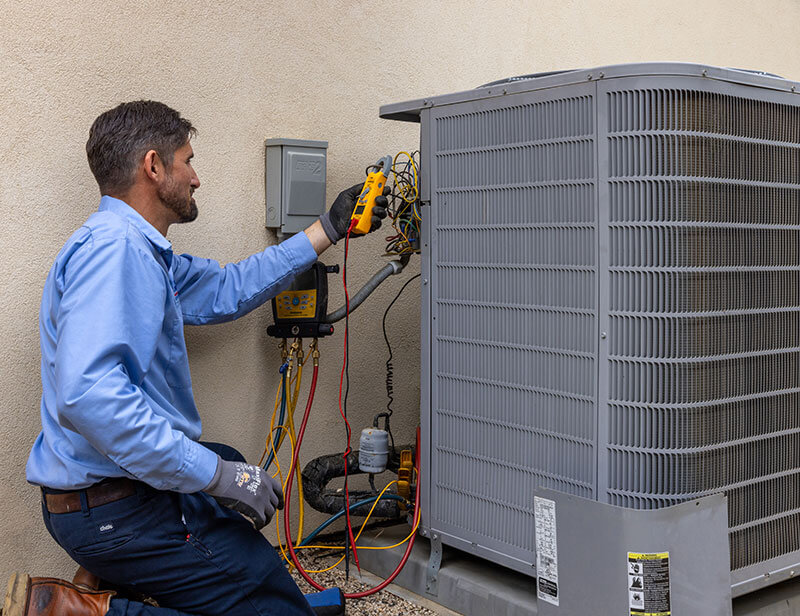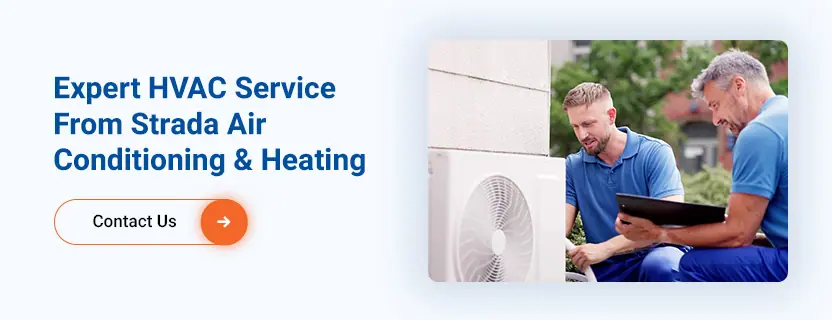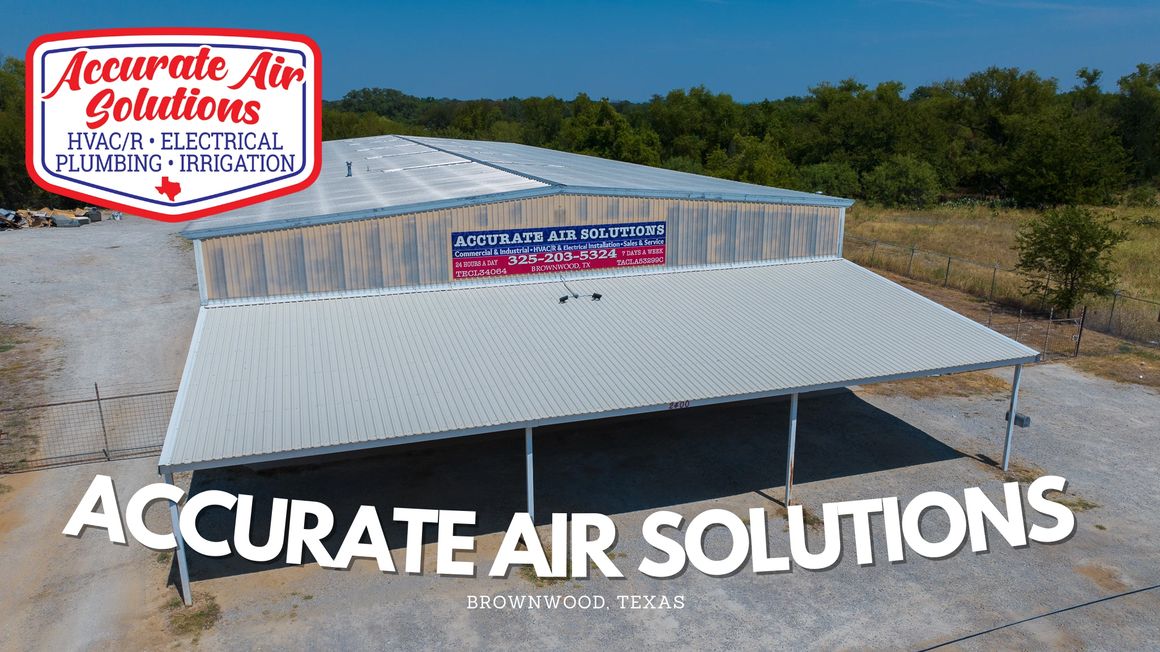Specialist Tips for Successful Air Conditioning Installation Brownwood TX
Specialist Tips for Successful Air Conditioning Installation Brownwood TX
Blog Article
Understanding A/c: A Comprehensive Guide to Heating, Ventilation, and A/c Solutions
In today's rapidly progressing world, an essential understanding of cooling and heating systems is no more a high-end yet a need for ensuring optimum indoor settings. This guide provides a complete exploration of air flow, air, and home heating conditioning services, demystifying the intricate interaction of parts that control comfort and performance. As we navigate through the details of selecting the best system and maintaining it for peak performance, one begins to understand the extensive effect these systems carry power intake and sustainability. What typical mistakes could be undermining your heating and cooling system's possibility without your expertise?
Basics of Cooling And Heating Systems
Home Heating, Ventilation, and A/c (COOLING AND HEATING) systems are essential components in modern architecture, constantly guaranteeing optimum indoor air high quality and thermal comfort. These systems are integral to keeping the health and wellness, efficiency, and wellness of passengers in property, industrial, and commercial setups. At their core, a/c systems are designed to regulate the temperature level, humidity, and tidiness of air, producing a comfortable environment despite exterior climate condition.
The fundamental components of an A/c system include heating units, ventilation ducts, and air conditioning systems. Air flow, a critical aspect of the system, involves the exchange of outside and indoor air, lowering interior contaminants and managing dampness degrees.

Selecting the Right Heating And Cooling System
Selecting a HVAC system involves a careful balance of price, effectiveness, and viability to the specific requirements of a building. It is important to think about the environment of the area, as this will influence the kind of system that best maintains comfortable interior temperature levels throughout the year.
Energy performance scores, such as SEER (Seasonal Power Efficiency Ratio) for air conditioning system and AFUE (Annual Gas Utilization Efficiency) for heaters, are critical variables when reviewing possible systems. Higher rankings commonly suggest better performance and lower operating expenses in time. In addition, prospective customers should contrast ahead of time prices with potential long-lasting savings to establish the most effective monetary alternative.
An additional essential factor to consider is the sort of system-- whether a central system, split system, or ductless mini-split is ideal. Each offers distinct benefits and constraints, depending on setup complexity and room needs. Assessment with heating and cooling specialists is suggested to make certain that the system chosen straightens with both the structure's specifications and the residents' comfort preferences.
Significance of Regular Upkeep
As soon as the suitable heating and cooling system is picked and installed, maintaining its effectiveness and longevity ends up being a top priority. Routine upkeep is important for making sure that the system operates at peak efficiency, minimizing the danger of unexpected break downs. Routine inspections and servicing can recognize possible problems prior to they intensify into pricey repairs or replacements, thereby extending the life expectancy of the equipment.

Moreover, adhering to an upkeep schedule can protect the warranty coverage, as lots of manufacturers call for evidence of normal maintenance to honor service warranty insurance claims. Engaging expert a/c technicians for routine upkeep makes sure that all elements are examined precisely and adjusted as needed. This positive technique not just safeguards the financial investment in the HVAC system but additionally promotes a healthier indoor setting for passengers, enhancing total health.
Enhancing Energy Effectiveness
To enhance power effectiveness in heating and cooling systems, it is important to execute techniques that lessen energy usage while keeping optimal performance. One efficient strategy is the combination of clever thermostats, which enable accurate control over temperature setups based on occupancy and time of day. These devices can learn licensed air conditioner installer patterns and readjust home heating and cooling down routines as necessary, lowering unneeded energy usage.
Another method involves routine evaluation and cleansing of cooling and heating components, such as air filters, coils, and ductwork. Clean systems run extra efficiently, as dirt and debris can obstruct air movement and require the system to function harder, consuming even more power. Making sure proper insulation and sealing is also important, as it stops energy loss and lowers the load on a/c systems.
Moreover, updating to energy-efficient tools, such as variable-speed motors and high-efficiency compressors, can considerably reduce power usage. These components readjust their rate and output to match the details home heating or cooling down demand, avoiding energy wastage.
Spending in energy recuperation air flow systems can also improve effectiveness by trading heat between inbound and outgoing air streams, minimizing the demand for added heating or air conditioning. By adopting these steps, heating and cooling systems can attain premium energy effectiveness, bring about minimized functional costs and environmental impact.
Troubleshooting Common Issues
When attending to HVAC system malfunctions, a structured technique to fixing can effectively recognize and resolve usual problems. The initial step involves examining the thermostat setups to ensure they are right and working. Often, incorrect settings or dead batteries can trigger the system to act unevenly. Next, examine the air filters. Stopped up or dirty filters restrict air flow, visit this site reducing system performance and might bring about getting too hot or freezing.
Inspect the breaker and merges; stumbled breakers or blown integrates can halt system procedures. Furthermore, check out the outside unit for any obstructions or particles that can prevent performance. Regular upkeep of these components can stop lots of common issues.
Pay attention for uncommon sounds, which might suggest mechanical issues such as worn-out belts or motor troubles. Inexplicable rises in power expenses can likewise indicate underlying ineffectiveness or leakages in ductwork. Guarantee that all vents are open and unhampered to facilitate optimum air flow.

Specialist intervention ends up being needed if these actions do not settle the issue, particularly for complex problems like cooling agent leakages or electric faults. Routine assessments and upkeep by licensed technicians can preemptively deal with potential issues, guaranteeing the a/c system runs efficiently and dependably.

Verdict
In about his conclusion, a detailed understanding of cooling and heating systems is essential for making sure ideal interior convenience and air high quality. By picking the suitable system based on certain structure needs, the efficiency and sustainability of air flow, home heating, and air conditioning services can be taken full advantage of. Regular maintenance is essential for maintaining system performance and longevity, while energy efficiency can be significantly improved via educated methods. Dealing with usual concerns via efficient fixing additional ensures the reputable procedure of cooling and heating systems, profiting both businesses and home owners.
As we browse through the details of picking the right system and maintaining it for peak efficiency, one starts to understand the profound influence these systems have on power intake and sustainability.Heating, Ventilation, and Air Conditioning (HEATING AND COOLING) systems are critical parts in contemporary architecture, continually making sure optimal interior air quality and thermal comfort (air conditioning contractor in Brownwood TX).Another crucial factor to consider is the type of system-- whether a centralized system, split system, or ductless mini-split is proper. Tidy systems operate much more efficiently, as dirt and debris can block airflow and require the system to function harder, eating even more power.In final thought, a complete understanding of HVAC systems is essential for making certain optimum indoor comfort and air quality
Report this page